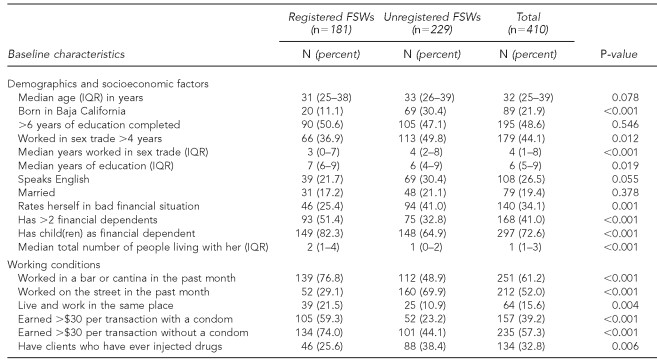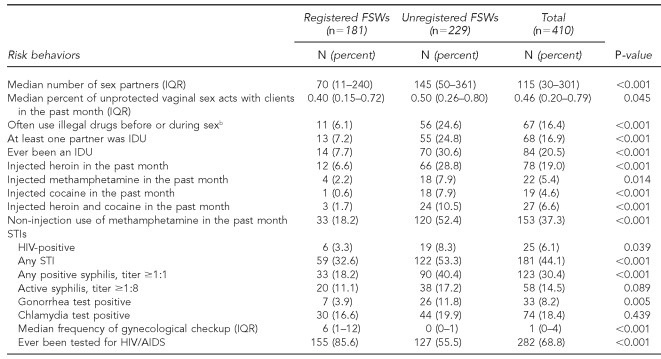Is prostitution legal in Tijuana, Mexico? Absolutely, sex work is regulated in Tijuana, Mexico, offering a unique perspective on LGBTQ+ experiences and legal frameworks within Mexico, and gaymexico.net is here to guide you through it all. Discover insights into LGBTQ+ rights, Tijuana’s legal landscape, and valuable resources for a safe and informed experience with our complete guide.
1. What is the Legal Status of Prostitution in Tijuana, Mexico?
Prostitution is legal but regulated in Tijuana, Mexico. This means it’s not entirely decriminalized, but rather governed by specific rules and zones.
-
Regulation, Not Legalization: Tijuana operates under a “reglamentarist” policy, which distinguishes it from full legalization. This involves certain controls and requirements for sex workers.
-
Zones of Tolerance: Sex work is typically confined to designated areas known as zonas rojas or zones of tolerance. These areas are where legal sex work is permitted under local regulations.
-
Registration Requirements: Sex workers in Tijuana are required to register with the municipal health department (Servicios Médicos Municipales). This registration involves regular health screenings for STIs and HIV.
2. What are the Key Regulations Governing Prostitution in Tijuana?
Understanding the regulations helps ensure safety and compliance for both sex workers and clients.
-
Health Department Oversight: The municipal health department (MHD) oversees the registration and health monitoring of sex workers.
-
Mandatory Health Screenings: Registered sex workers must undergo monthly HIV testing and quarterly STI screenings. This is a crucial aspect of the regulatory framework to control the spread of infections.
-
Antibiotic Treatment: Women registering as sex workers are treated with antibiotics according to federal STI guidelines.
-
Card Revocation: If a sex worker tests positive for HIV, their registration card is revoked, and they are referred to specialized care.
3. How Does Registration Affect Health Outcomes for Sex Workers in Tijuana?
Registration aims to improve health outcomes, but the reality is complex.
-
Higher HIV Testing Rates: Registered sex workers are more likely to have been tested for HIV compared to their unregistered counterparts.
- According to research, 86% of registered FSWs had HIV testing compared to 56% of unregistered FSWs.
-
Lower STI Prevalence: Registered sex workers tend to have lower rates of STIs.
- Studies show that 33% of registered FSWs tested positive for any STI compared to 53% of unregistered FSWs.
-
Potential Loopholes: Despite the regulations, not all registered sex workers may be fully compliant with health checks.
- For instance, one study found that only 85% of registered women reported ever having been tested for HIV, suggesting some may bypass the system.
4. What are the Factors Influencing Registration Among Sex Workers?
Various factors impact whether a sex worker chooses to register with the authorities.
-
Higher Income: Sex workers earning more per transaction are more likely to register.
- Those earning over $30 per transaction without a condom are more likely to be registered (AOR=2.41).
-
Venue-Based Work: Working in establishments like bars increases the likelihood of registration.
- 77% of registered FSWs work in bars compared to 49% of unregistered FSWs.
-
Street-Based Work: Working on the street is inversely associated with registration.
- Street-based sex workers are less likely to be registered (AOR=0.34).
-
Drug Use: Injecting cocaine or using methamphetamine decreases the likelihood of registration.
- Injecting cocaine (AOR=0.06) and using methamphetamine (AOR=0.27) are inversely associated with registration.
-
Place of Birth: Sex workers born in Baja California are less likely to register.
- Being born in Baja California is inversely associated with registration (AOR=0.35).
 Tijuana street scene at night with neon lights and traffic
Tijuana street scene at night with neon lights and traffic
5. How Does the Legal Framework Impact LGBTQ+ Individuals in Tijuana?
The legal status of prostitution can have broader implications for LGBTQ+ individuals in Tijuana.
-
Increased Vulnerability: LGBTQ+ sex workers may face additional challenges and stigma due to their sexual orientation or gender identity.
-
Discrimination: They may experience discrimination from law enforcement, clients, or even within the sex work industry itself.
-
Need for Targeted Support: Specific support and resources are needed to address the unique needs of LGBTQ+ sex workers, including healthcare, legal aid, and safe housing.
6. What Public Health Measures are in Place for Sex Workers in Tijuana?
Public health measures are integral to managing the health risks associated with sex work.
-
STI and HIV Screening: Regular screenings are mandated for registered sex workers to detect and treat infections early.
-
Referral to Care: Sex workers who test positive for HIV are referred to specialized care and treatment.
-
Condom Distribution: Efforts are made to promote and distribute condoms to reduce the transmission of STIs and HIV.
-
Health Education: Educational programs are provided to sex workers on safer sex practices and the prevention of STIs and HIV.
7. What are the Challenges in Regulating Prostitution in Tijuana?
Despite the regulatory framework, several challenges persist.
-
Under-Registration: Many sex workers remain unregistered, making it difficult to monitor their health and ensure compliance with regulations.
-
Enforcement Issues: Enforcing registration and health screening requirements can be challenging, particularly for street-based sex workers.
-
Stigma and Discrimination: Stigma and discrimination can deter sex workers from seeking registration and accessing healthcare services.
-
Drug Use: High rates of drug use among some sex workers complicate efforts to promote safer sex practices and prevent the spread of infections.
8. What are the Ethical Considerations of Prostitution Laws in Tijuana?
Ethical considerations play a significant role in the debate over prostitution laws.
-
Autonomy and Choice: Some argue that sex work should be decriminalized to respect the autonomy and choices of individuals.
-
Exploitation and Trafficking: Others are concerned about exploitation and trafficking, arguing that prostitution can perpetuate these issues.
-
Public Health: Public health officials focus on reducing the spread of STIs and HIV through regulation and health screening.
-
Human Rights: Human rights advocates emphasize the need to protect the rights and dignity of sex workers, regardless of their legal status.
9. What Resources are Available for LGBTQ+ Individuals in Tijuana?
Several resources are available to support LGBTQ+ individuals in Tijuana.
-
LGBTQ+ Organizations: Local organizations offer support, advocacy, and community-building opportunities.
-
Healthcare Services: Healthcare providers offer LGBTQ+-friendly services, including HIV testing, STI screening, and mental health support.
-
Legal Aid: Legal organizations provide assistance with issues such as discrimination, violence, and human rights violations.
-
Safe Spaces: Safe spaces and community centers offer a welcoming environment for LGBTQ+ individuals to connect and access resources.
10. How Can I Stay Safe and Informed in Tijuana as an LGBTQ+ Traveler?
Staying safe and informed is crucial for LGBTQ+ travelers visiting Tijuana.
-
Research: Research LGBTQ+-friendly establishments and areas in Tijuana.
-
Respect Local Laws: Be aware of local laws and regulations regarding prostitution and public behavior.
-
Stay Informed: Stay informed about current events and any potential safety concerns.
-
Trust Your Instincts: Trust your instincts and avoid situations that feel unsafe or uncomfortable.
-
Connect with the Community: Connect with local LGBTQ+ organizations and community members for support and guidance.
11. How Does Tijuana Compare to Other Cities in Mexico Regarding Prostitution Laws?
Tijuana’s approach to prostitution laws differs from other cities in Mexico.
-
Abolitionist Policies: Some cities, like Puebla and Guanajuato, have abolitionist policies where sex work is considered a misdemeanor.
-
Reglamentarist Policies: Other cities, like Tijuana, follow reglamentarist policies, regulating sex work within designated zones.
-
Varied Enforcement: Enforcement of prostitution laws can vary significantly from city to city.
12. What are the Current Debates Surrounding Prostitution Laws in Mexico?
The debate over prostitution laws in Mexico is ongoing.
-
Decriminalization: Some advocate for decriminalization to reduce stigma and improve the rights and safety of sex workers.
-
Regulation vs. Prohibition: Others argue for stricter regulation or complete prohibition to combat exploitation and trafficking.
-
Public Health Concerns: Public health officials focus on finding effective ways to prevent the spread of STIs and HIV, regardless of the legal status of prostitution.
13. How Can Technology Help Improve Safety for Sex Workers in Tijuana?
Technology can play a role in improving safety for sex workers.
-
Mobile Apps: Apps can provide sex workers with tools to screen clients, share information, and alert authorities in case of emergencies.
-
Online Forums: Online forums can facilitate communication and support among sex workers.
-
GPS Tracking: GPS tracking devices can help monitor the location of sex workers and provide assistance if needed.
14. What Role Does Tourism Play in the Sex Work Industry in Tijuana?
Tourism significantly impacts the sex work industry in Tijuana.
-
Sex Tourism: Tijuana is a destination for sex tourism, particularly due to its proximity to the United States.
-
Economic Impact: The sex work industry generates revenue for the local economy, but it also raises concerns about exploitation and trafficking.
-
Regulation Efforts: Authorities attempt to regulate the industry to protect sex workers and prevent the spread of infections.
15. How Can I Support Ethical Tourism in Tijuana?
Supporting ethical tourism is essential for responsible travel.
-
Research Establishments: Research establishments and businesses that support fair labor practices and respect human rights.
-
Support Local Businesses: Support local businesses that contribute to the community’s economic development.
-
Respect Local Culture: Respect local culture and customs, including laws and regulations regarding prostitution.
-
Educate Yourself: Educate yourself about the challenges facing sex workers and other vulnerable populations in Tijuana.
16. What are Some Common Misconceptions About Prostitution in Tijuana?
Several misconceptions surround prostitution in Tijuana.
-
All Sex Workers are Trafficked: While trafficking is a serious concern, not all sex workers are victims of trafficking.
-
Prostitution is Always a Choice: The decision to engage in sex work is often influenced by economic necessity and other factors.
-
Sex Workers are Always Unsafe: With proper regulation and access to healthcare, sex work can be made safer.
17. How Can I Learn More About LGBTQ+ Rights in Mexico?
Learning about LGBTQ+ rights in Mexico can help travelers stay informed and respectful.
-
Research LGBTQ+ Organizations: Research local and national LGBTQ+ organizations that advocate for equal rights.
-
Follow News and Updates: Stay informed about current events and legal developments related to LGBTQ+ rights in Mexico.
-
Attend Workshops and Events: Attend workshops and events that promote LGBTQ+ awareness and understanding.
18. What Should I Do if I Experience Discrimination as an LGBTQ+ Person in Tijuana?
If you experience discrimination as an LGBTQ+ person in Tijuana, take action.
-
Report the Incident: Report the incident to local authorities and LGBTQ+ organizations.
-
Seek Legal Aid: Seek legal aid from organizations that specialize in LGBTQ+ rights.
-
Document the Incident: Document the incident with photos, videos, and written accounts.
-
Connect with Support Networks: Connect with support networks and community members for assistance and emotional support.
19. What are the Potential Reforms to Prostitution Laws in Tijuana?
Potential reforms to prostitution laws in Tijuana could improve the situation for sex workers.
-
Decriminalization: Decriminalizing sex work could reduce stigma and improve access to healthcare and legal protections.
-
Regulation Reform: Reforming regulations could make them more effective in preventing exploitation and promoting health.
-
Community Involvement: Involving sex workers and other stakeholders in the development of reforms could ensure that their needs are addressed.
-
Increased Resources: Increasing resources for law enforcement and social services could help combat trafficking and support vulnerable populations.
20. How Does Drug Use Affect the Prostitution Industry in Tijuana?
Drug use has a significant impact on the prostitution industry.
-
Increased Risk: Drug use can increase the risk of STIs, HIV, and violence among sex workers.
-
Marginalization: Drug-using sex workers may face additional marginalization and discrimination.
-
Need for Support: Targeted support and treatment services are needed to address drug use among sex workers.
-
Harm Reduction: Harm reduction strategies can help reduce the negative consequences of drug use.
21. What are the Safe Sex Practices Recommended for Sex Workers in Tijuana?
Safe sex practices are essential for protecting the health of sex workers and their clients.
-
Condom Use: Consistent condom use can prevent the transmission of STIs and HIV.
-
Regular Testing: Regular STI and HIV testing can detect infections early and allow for prompt treatment.
-
Communication: Open communication with clients about safe sex practices is important.
-
Vaccination: Vaccination against HPV and hepatitis B can prevent these infections.
22. How Can I Contribute to Improving the Lives of Sex Workers in Tijuana?
There are several ways to contribute to improving the lives of sex workers.
-
Support Organizations: Support organizations that provide healthcare, legal aid, and other services to sex workers.
-
Advocate for Reform: Advocate for reforms to prostitution laws that protect the rights and safety of sex workers.
-
Educate Others: Educate others about the challenges facing sex workers and the need for support.
-
Donate: Donate to organizations that support sex workers and combat trafficking.
23. What Are the Challenges Faced by Transgender Sex Workers in Tijuana?
Transgender sex workers in Tijuana face unique challenges.
-
Discrimination: They often face discrimination and violence due to their gender identity.
-
Healthcare Access: Access to healthcare, including gender-affirming care, can be limited.
-
Legal Issues: Legal protections for transgender individuals may be lacking.
-
Need for Support: Targeted support and advocacy are needed to address the specific needs of transgender sex workers.
24. How Does the Legal Status of Prostitution Affect Trafficking in Tijuana?
The legal status of prostitution can affect trafficking in Tijuana.
-
Mixed Evidence: Some argue that legalizing or regulating prostitution can reduce trafficking by bringing the industry under government oversight.
-
Increased Demand: Others argue that it can increase demand for sex work and exacerbate trafficking.
-
Comprehensive Approach: A comprehensive approach that combines prevention, prosecution, and protection is needed to combat trafficking effectively.
25. What are the Mental Health Challenges Faced by Sex Workers in Tijuana?
Sex workers in Tijuana often face mental health challenges.
-
Stigma and Discrimination: Stigma and discrimination can lead to depression, anxiety, and other mental health issues.
-
Violence and Trauma: Experiencing violence and trauma can have long-lasting effects on mental health.
-
Substance Abuse: Substance abuse can be a coping mechanism for dealing with stress and trauma.
-
Need for Support: Mental health services, including counseling and therapy, are essential for supporting the well-being of sex workers.
Navigating the complexities of Tijuana’s legal and social landscapes can be challenging, but gaymexico.net is dedicated to providing comprehensive, reliable, and respectful information to help you explore Mexico safely and confidently. Whether you’re seeking guidance on LGBTQ+ rights, travel tips, or community resources, we’re here to support your journey. Connect with us today and discover a welcoming and informed experience in Mexico. Address: 3255 Wilshire Blvd, Los Angeles, CA 90010, United States. Phone: +1 (213) 380-2177. Website: gaymexico.net.
 Night view of a busy street in Tijuana, Mexico, with many people and shops
Night view of a busy street in Tijuana, Mexico, with many people and shops
FAQ: Prostitution in Tijuana, Mexico
1. Is prostitution legal in Tijuana, Mexico?
Prostitution is regulated in Tijuana, meaning it’s legal within designated zones but requires registration and health checks.
2. What are the zonas rojas in Tijuana?
Zonas rojas are designated areas where legal sex work is permitted under local regulations in Tijuana.
3. How do sex workers register in Tijuana?
Sex workers must register with the municipal health department (Servicios Médicos Municipales) and undergo regular health screenings.
4. What health screenings are required for registered sex workers?
Registered sex workers must undergo monthly HIV testing and quarterly STI screenings.
5. What happens if a sex worker tests positive for HIV?
Their registration card is revoked, and they are referred to specialized care.
6. Are there specific regulations for LGBTQ+ sex workers in Tijuana?
LGBTQ+ sex workers may face additional stigma and discrimination, requiring targeted support and resources.
7. What public health measures are in place for sex workers?
Public health measures include STI and HIV screening, referral to care, condom distribution, and health education.
8. What are the main challenges in regulating prostitution in Tijuana?
Challenges include under-registration, enforcement issues, stigma, discrimination, and drug use.
9. How does tourism impact the sex work industry in Tijuana?
Tourism contributes to the industry but also raises concerns about exploitation and trafficking.
10. What resources are available for LGBTQ+ individuals in Tijuana?
Resources include LGBTQ+ organizations, healthcare services, legal aid, and safe spaces.
